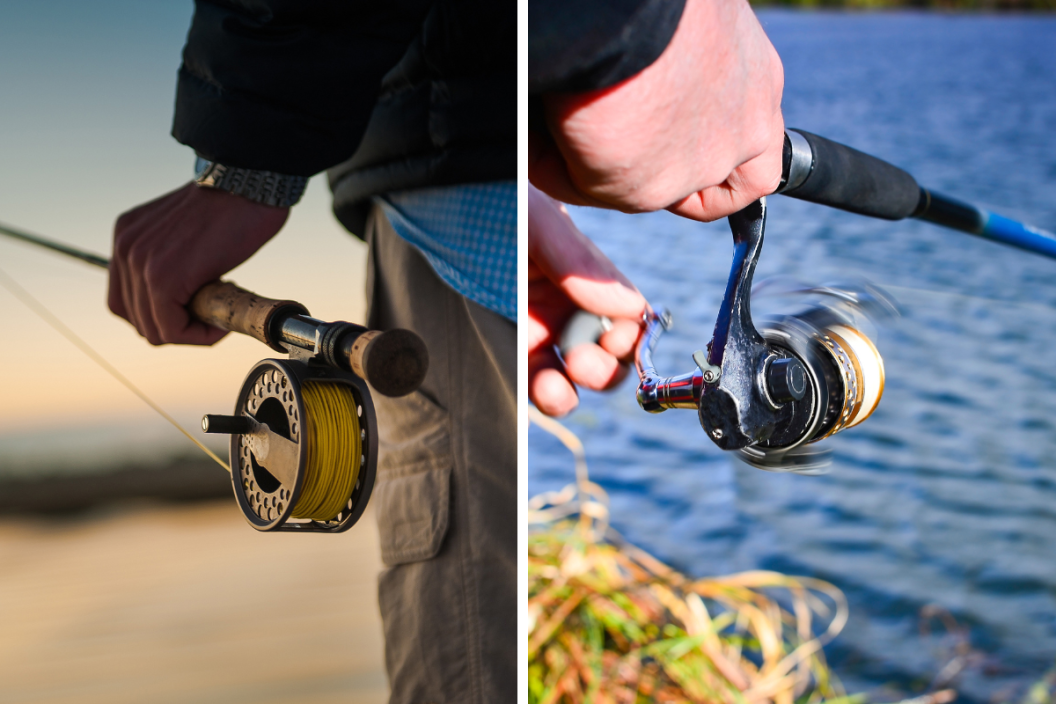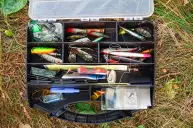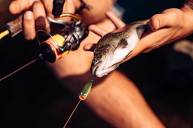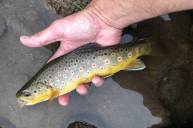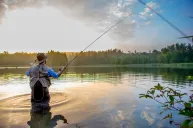Rifle vs. shotgun, crossbow vs. compound bow, smallmouth vs. largemouth bass. The arguments will never cease, especially regarding an age-old question in the outdoor world. Which is better, fly fishing or conventional fishing?
Both forms of fishing try to capitalize on the common food source for different fish species. Hopefully, that means a lot of fish, but that's beside the point. Let's take a moment to have some fun, look at the differences, and maybe even poke a little fun at each other. We are all a part of the same fishing fraternity, and no one fights like brothers and sisters. The most significant difference is in gear, and we'll cover that. Still, there seems to be a mentality and attitude difference that leaks into the discussion.
In the end, if you prefer one or the other, so be it. Just remember that if it works, that's all that matters.
What is Fly Fishing?
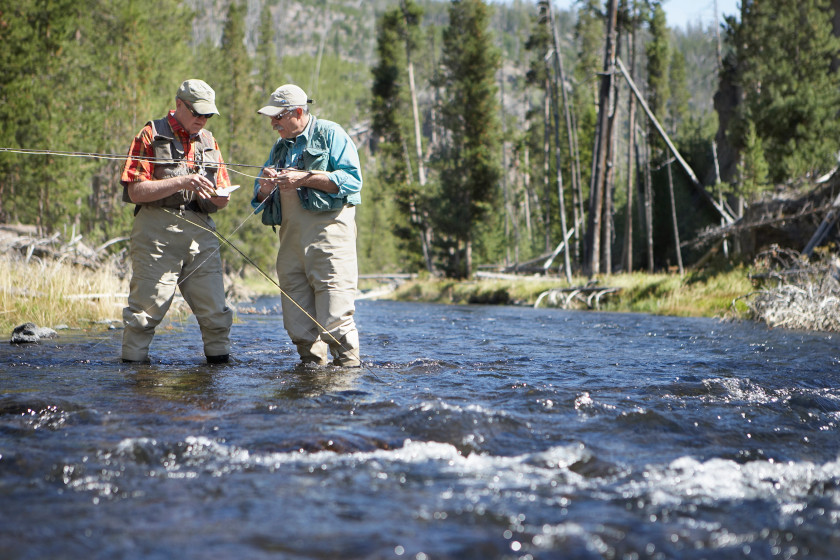
Getty Images: Stewart Sutton
Is there an outdoor subject written about more than fly fishing? The revered author Izaak Walton called "The Contemplative Man's Recreation." Fishing with fly gear can be just as exciting and thrilling as regular gear, sometimes even more so. A lot of fly fishing is done in clear water that isn't over the angler's knees, meaning you can often see what's going on under the surface.
Fly fishing calls for stealth, patience, and a keen eye. Fishermen need to know what it is a fish is doing and why. The standard convention may tell you that fly fishing is only for cold water species like trout and salmon. But the fact remains that tarpon, permit, bonefish, and even bass, pike, and muskellunge are increasingly caught with fly gear.
The downside is that fly fishing calls for a more tempered approach and tends to be a more learned experience due to some of the intricacies involved. Fly casting is not an easy thing and must be learned with patience and proper instruction over time. Beginner flyfishermen can simplify things, starting with traditional methods like Tenkara, which uses only the rod, line, and fly to catch fish.
Extra tools and accessories are needed to fly fish. We're talking fly lines, forceps, dry fly floatant, leader straighteners, and perhaps a fly fishing vest to hold your flies, leader, and tippet. Fly fishing has a long history dating back to the Macedonians, the Japanese, and even anglers from the Western European countries of Scotland and Ireland. Fly fishing has become one of the greatest and most talked about methods to catch fish. It's no wonder hardcore fly anglers often won't fish any other way.
What is Conventional Fishing?
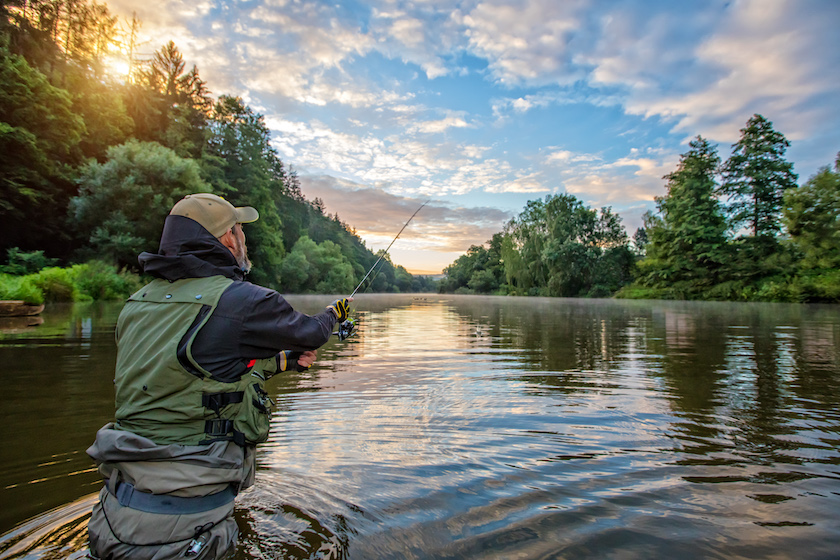
Jag_cz via Getty Images
We've been hooked since we laid our hands on the first rod and reel combo mom and dad bought us. Raise your hands if you ever took one of your first rigs out into the backyard and took a few casts, pitched into the swimming pool, or flipped a jig into a bucket. Bait casting anglers and spin casters can do it with one hand and, with practice, place it on a dime.
Learning to cast with conventional gear is much easier than using a fly rod, and many will tell you that it catches more fish. That's debatable and undoubtedly dependent on conditions, but it is an argument often made.
That being said, fishing conventionally is to our psychological advantage since our success creates a positive attitude in all of us. It's great for beginners and youngsters when they're just getting started. Kids take to this style of fishing like a fish to... well, you get the point.
What is Spin Fishing and Baitcasting?
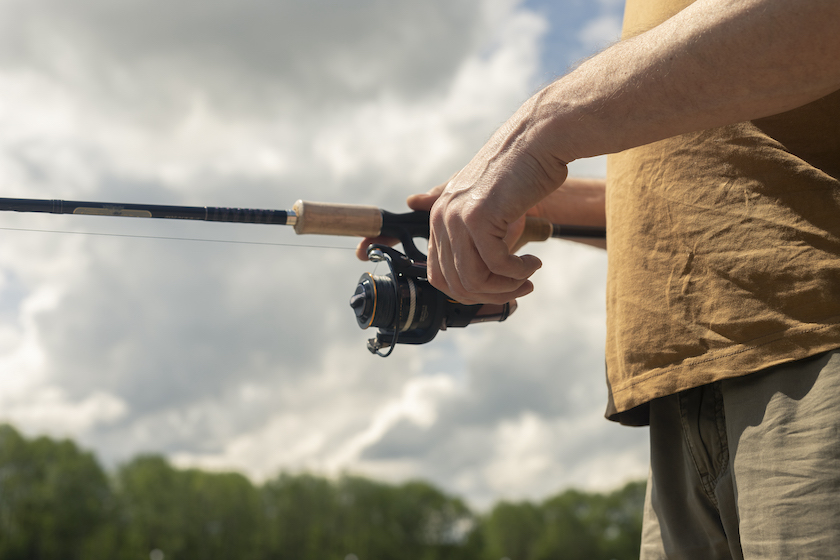
valiantsin suprunovich via Getty Images
Many fishermen started with the more demanding casting rig because it came first. The original baitcasters were challenging to use and prone to severe backlash. Once today's technology resolved this issue, we were convinced that fishing had gone to heaven, and largemouth bass everywhere started trembling.
Spinning rigs are among the simplest, easiest-to-use fishing gear out there. Kids can learn to cast a spinning reel throughout the morning, using many different lures and baits. If you tie on a bobber, things become even more simplified. When you see the bobber sink, set the hook!
Maybe the best part is that both spinning and casting rigs can catch fish using live bait with the simplest of changes to the setup. The conventional rig can throw, cast, pitch, flip, troll, or otherwise put your bait into the water and in front of fish in the best possible way, bar none. That goes for everything from crankbaits to spinnerbaits.
Conventional fishing can catch anything a fly fishing rig can catch and be almost as subtle about it. Spinning rigs can use the lightest lines and the most finesse-friendly baits. Casting rigs can load up with the heaviest fishing line and lures, dredge the depths, or be cast into the middle of the gnarliest cover to pull fish out. Though a fly fisherman can certainly change things up, competing with the versatility at hand is tough when you use a conventional fishing setup.
Fly Fishing vs. Conventional Fishing: The Verdict
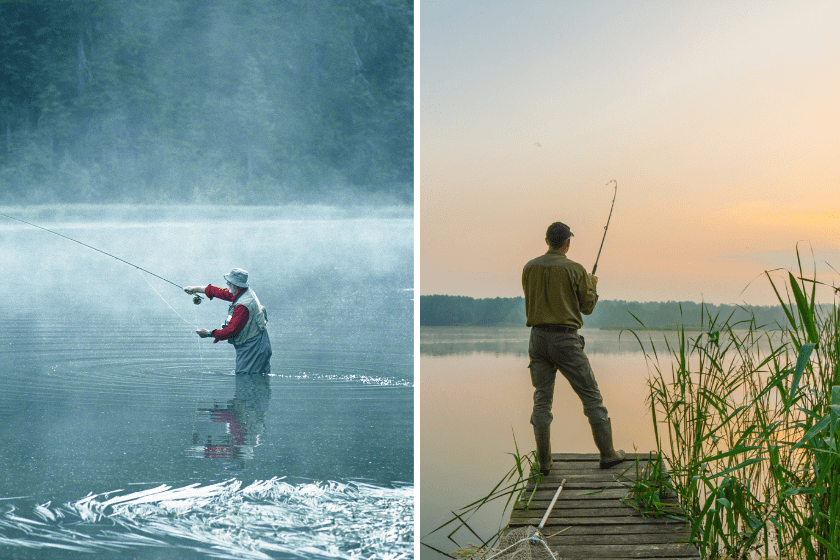
Left: Mike Powell via Getty Images. Right: Marek Trawczynski via Getty Images
The differences are as numerous as the similarities. Fly fishing can be described as the subtle beauty of creating a myth for the wily fish. It is the beauty of outwitting your opponent with your guile and wits. Conventional fishing is where the rubber meets the road. Once technology began to help us outsmart the fish, many of us never looked back. Fooling a fish into thinking our offering was real wasn't enough. Now we had to catch that fish's daddy and its grandaddy! We hired charter captains to take us deep sea fishing in the farthest saltwater reaches in search of fish the size of a small car.
Once they saw what we were doing, the fly fishing crowd wouldn't be outdone. They put together rigs that could handle big king salmon the size of your leg. Things kept advancing, and they haven't slowed much at all. Both fishing styles have a lot to love.
Whether you use your fishing rod for catching baitfish or catfish for the first time, it doesn't matter what fishing technique you use, only that you enjoy yourself. Fly anglers and regular fishing enthusiasts agree that the know-how may be subjective. Still, the results are the same for the types of fishing and the body of water you fish. The casting technique may differ, and the artificial lures a world apart, but your fishing method is entirely up to you.
This article was originally published on December 13, 2020.
